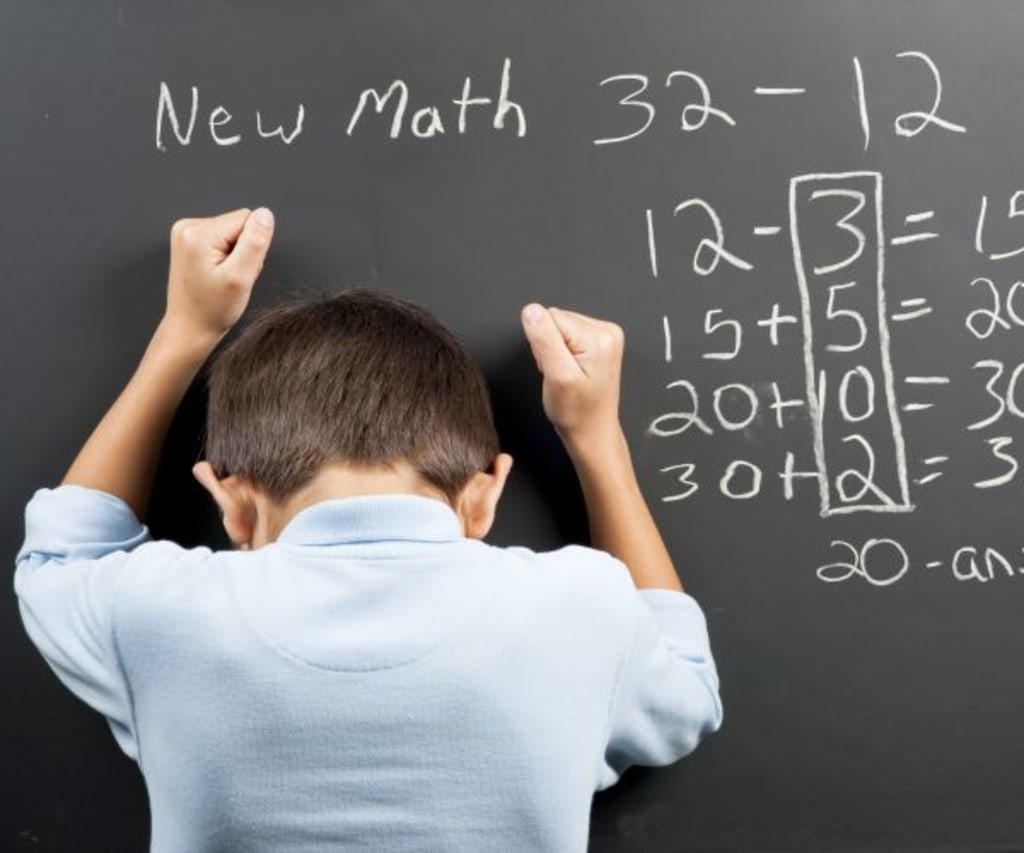No Joke: Feynman & the Common Core
What would happen if one of the greatest minds of our time were here to see what math education looks like now?

One of the things I have been working on as a point of self-improvement recently is broadening my horizons as far as reading materials are concerned. I've always prided myself on my willingness to read anything. Packing up my books into boxes to move into my new house, I realized that while it may be true that I will read anything, I wasn't making the effort to be as well-rounded as I should. The majority of my shelves are classic or modern fiction. To remedy the situation I recently picked up and Dr. Richard Feynman's memoir Surely You're Joking, Mr. Feynman.
I learned briefly about Richard Feynman in my high school physics class. He was a theoretical physicist who worked at Los Alamos on the atomic bomb development and later received a Nobel Prize in Physics for his work with quantum electrodynamics. That was about as much as I remembered. I had a huge crush on my high school Physics teacher and devoted most of my energies into flirting instead of passing my AP exam (which I failed).
As a person steeped in the Humanities, I tend to imagine my counterparts in the maths and sciences as a bit dry and one dimensional. Reading his memoir, I learned that on top of being one of the greatest scientific minds of our time, Feynman was also an artist, an adventurer and a passionate advocate for practical education.
Though the majority of the text is dedicated to immortalizing Dr. Feynman's penchant for wandering into unlikely adventures like gambling with Nick the Greek or becoming a frigideira player in a Brazilian samba school, he delves multiple times into his personal opinions on learning and criticisms of the public education system. One thing he makes clear is that he believes that all education should have a practical purpose and implementation and that simply being able to repeat something does not equate to knowing it.
He shares a story of teaching advanced college physics students in a university in Brazil that were able to recite for the word-for-word physics principles, but could not recognize a real world example of that principle at work. In another anecdote, he criticized the process for choosing math and science textbooks in US public schools. Having served on a committee to help recommend the K-12 textbooks in the state of California, he was disheartened by the lack of practical application opportunity for the concepts the children were meant to learn. This was all the back in the 1960's, but it made me wonder what Dr. Feynman would think about our newest methodology, Common Core.
Common Core Math has been occupying space in the back of my mind since my boss brought in one of his daughter's second-grade math worksheets a few months ago. Now it's been a minute since I was in the public school system. I have two Bachelor's degrees and an MBA, so I have taken my fair share of math courses including trigonometry, calculus, and financial accounting, but what I saw looking back at me on that paper was completely foreign. It might as well have been written in Greek (but I probably would have understood that better). There were crazy boxes and color coordination instructions that as far as I could tell had absolutely nothing to do with actual math. Knowing that I am certainly not an expert in elementary math education, I did what I always do, I researched it. From what I gathered, it seems that the idea behind the "new math" common core is meant to teach children the "why" behind the basic concepts of addition, subtraction, multiplication, and division, standardizing the way kids across the country learn math and evening the playing field for kids from different regions. In theory, this sounds like a good idea, but in practice, it appears to be the opposite.
Social media has been buzzing with numerous angry parents sharing horrendous examples of common core problems that are nearly unintelligible. While there are some defenders for the new standards, it seems the overwhelming majority of literature is critical of the practice. Martin Cothran, an educator in California wrote a particularly interesting piece in the Spring 2016 issue of The Classical Teacher which breaks down the idea that overcomplicating the simplest building blocks of math hampers children's' ability to perform more complicated operations later in their education. There are a lot of expert opinions out there, and I don't presume to be informed enough to have one of them. I do wish Dr. Feynman were still alive so that we could hear his take on Common Core. Though we'll truly never know, I imagine he would be critical. As a lover of real-world scenarios, I imagine the adventuring physicist would eschew anything that overcomplicated the fundamentals of math, including inconsistent word problems and "number bonds."
About the Creator
Suzannah Fischer
Lover of long novels, bold lipsticks, and looking up at the stars.






Comments
There are no comments for this story
Be the first to respond and start the conversation.